Frenemies, A Love Story
Living in an era of head-spinning transformations, when old enemies are embracing Israel and old friends seem to be going wobbly, is good preparation for reading Jeffrey Herf’s fascinating history of the international and domestic politics surrounding Israel’s founding. In his reconstruction of a brief but historically significant period, from the end of World War II through the first months of the Cold War, we see what it was like when Israel’s future adversaries, the Soviet Union and its Communist satellites in Eastern Europe, were the most passionate global defenders of Zionism. America’s foreign policy elite, which has so often come to Israel’s aid in recent decades, was, at best, indifferent to the idea of Jewish sovereignty in the ancient homeland of the Jewish people.
At a time when the current autocrat in Moscow twists history to accuse the Jewish president of Ukraine of being a Nazi, it is difficult to imagine his even more bloodthirsty and virulently antisemitic Georgian-born predecessor as the most consistently helpful great power supporter of the new State of Israel. Stalin wasn’t acting solely out of benevolence, of course. He viewed the establishment of a Jewish state in Palestine, Herf argues, “as a possible instrument to eliminate or certainly reduce British and American presence and power in the Middle East.” But this does not explain everything. To a considerable extent, “support for the Zionist project in the Soviet Union and in Eastern Europe during these years also drew on the powerful memories and the antifascist passions of World War II on the Eastern Front and the Holocaust.”
Conversely, at a moment when the US secretaries of state, treasury, and homeland security, not to mention the attorney general, director of national intelligence, and White House chief of staff, are all Jewish, it is difficult to remember a time when the president’s foreign policy team considered the very existence of a Jewish state to be a mortal threat to the Western alliance. Herf reminds us that President Truman’s brain trust—the mandarins who gave us the enlightened liberal internationalism of NATO, Bretton Woods, and the Marshall Plan—recoiled at the prospect of an independent Israel as a likely Soviet-controlled puppet, which would sap the resources of America’s British ally, choke off essential maritime sea routes, and push an otherwise friendly (and resource-rich) Arab world into the welcoming arms of our Communist adversaries.
Israel’s Moment is an excellent account of how the State Department and its allies lost the battle over whether the US would support the 1947 United Nations (UN) Partition Plan for Palestine, regained the upper hand by convincing Truman to endorse trusteeship instead of Jewish statehood in early 1948, and then lost again when the president decided to recognize the new state minutes after it declared its independence—but then succeeded in convincing the White House to maintain an arms embargo on Israel that only helped the Arab states wage war. Herf digs deeper into the diplomatic, legislative, and journalistic histories than any of his predecessors to reconstruct the bureaucratic environment for the showdown between Secretary of State George Marshall, the much-revered war hero, and Truman’s political advisor Clark Clifford over the decision to recognize the new State of Israel. He likewise sheds new light on the critical role of Czech weapons, which Israel’s agents purchased in violation of a UN arms embargo, in defending the state from Arab attack.
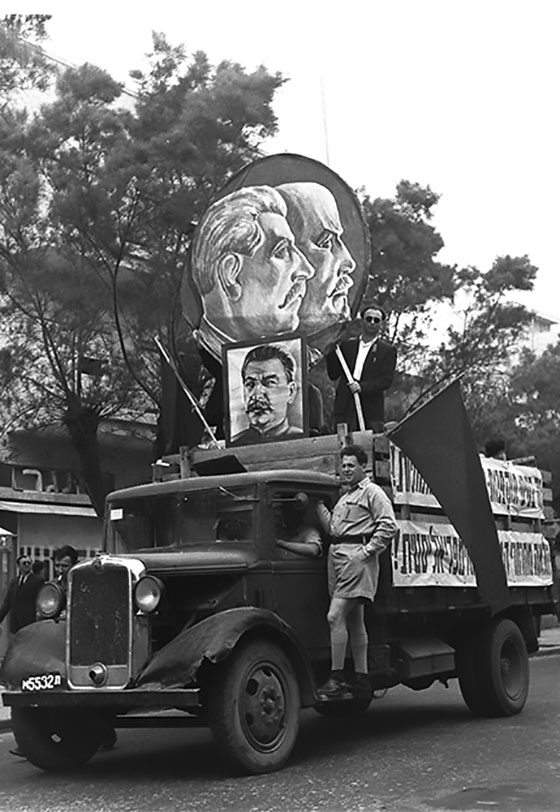
Providing sharp contrast to the cold-bloodedness of State Department officials, Herf quotes the emotional speeches and interventions of East Bloc diplomats at the fledgling UN—especially, though not solely, Poles—arguing passionately in support of Zionism. It was the Communists who lobbied the UN to allow the Jewish Agency to speak on behalf of the Jews of Palestine during the special session on partition, while US diplomats opposed it. Similarly, it was the Communists who recalled the recent deaths of Hitler’s six million Jewish victims to lend added legitimacy to Zionist aspirations for a national safe haven, while US diplomats refrained from ever mentioning the Holocaust.
In the spring of 1946, for instance, at the UN General Assembly’s first Special Session devoted to the situation in Palestine, Alfred Fiderkiewicz, the Polish UN representative and vice president of the General Assembly, concluded a description of the Nazi effort to exterminate the Jews with a statement highlighting the role of all Poles as witnesses to the Holocaust:
We cannot forget it and we shall not forget it. With the memory of this mass tragedy of a people deeply engraved in the mind and soul of our nation, we cannot help being interested in the fate of those unfortunate displaced persons who lost their families and who find it psychologically impossible to return to the places which to them are cemeteries where they are haunted by the memories of their dear ones killed by the Nazi barbarians.
The natural discomfort of Polish Jews in their native land did not imply that Palestine was the only place for them, he acknowledged, but that was where a great majority of them wanted to go, and that was the only Jewish community anywhere “prepared to accept Jews in great numbers.” As Herf argues, the humanity of such speeches tends to undercut the State Department’s notion that Soviet backing for the Zionist enterprise was merely a cynical ploy to divide the Western allies and plant a Communist flag in the eastern Mediterranean. (One wishes Herf could have mined internal Soviet and East Bloc bureaucratic files the way he dug so deeply into State Department, Pentagon, and CIA records to see if what Communist functionaries told each other aligned with what they told the world.)
It was not just the Communist hard left that championed the idea and fact of Jewish statehood but the anti-Communist center left as well. At the end of his book, Herf writes:
A key goal of the preceding pages is to bring the connection between the liberal and leftist spirit of the antifascism of World War II and its associated support for Zionism to the attention of several generations of readers whose political vocabulary dates primarily from the years since 1967.
He does this, in large part, by detailing the position taken on the Palestine question by The Nation, which served during the postwar years “as the flagship of Roosevelt-era liberalism and the non-communist left.”
Strange as it may sound today, when anti-Israelism is central to the politics of so many progressives, Freda Kirchwey, editor of The Nation, “made Zionist aspirations one of the defining aspects of both her own writing and that of authors she invited to appear in the magazine.” Kirchwey herself traveled to Palestine in the summer of 1946 and sent home dispatches full of sympathy for the Jewish cause, underscoring the simple yet powerful link that connected survivors from the hell of Europe with those in the Yishuv who spent the war years preparing the ground for independence—they were all Jews. “The horror of the past six years is alive in every Jew in Palestine whether he suffered it in his own person or through the bodies and minds of his fellow Jews in Europe.” She also thought that Israel’s social programs would introduce a progressive, even subversive, element into a largely feudal Middle East. When she returned, The Nation advocated for the partition of Palestine and the creation of a Jewish state.
If the Soviets and their allies and others on the left come off as comparatively good guys, at least as far as Israel’s birth is concerned, the cast of characters in Foggy Bottom appears even worse than in previous treatments of this subject, which is saying something. Herf is especially deft at exposing the heartlessness of the architect of America’s containment strategy against the Soviet Union, George F. Kennan. From his perch as the inaugural director of State Department Policy Planning, Kennan wrote memo after memo giving the wild rants of Foggy Bottom Arabists like William Eddy—Saudi Aramco’s man at the State Department and perhaps “the first Western diplomat to equate Zionism with racism”—the patina of Cold War legitimacy. Kennan’s critique of Truman’s decision to recognize Israel was well-nigh apocalyptic:
[Recognition] thereby threatens not only to place in jeopardy some of our most vital interests in the Middle East and the Mediterranean but also to disrupt the unity of the Western world and to undermine our entire policy toward the Soviet Union.
Herf’s treatment of the mufti of Jerusalem, Hajj Amin al-Husseini, about whom he has written before, is somewhat less convincing. The mufti had sided with the Nazis during World War II but was captured in 1945 and held under French house arrest, only to escape (perhaps while some of his captors looked the other way). He then made his way to Cairo and eventually headed the Arab Higher Committee, the local Palestinian organizational leadership. In that capacity, he directed the battle against the Yishuv in the months between the passage of the UN partition resolution in November 1947 and Israel’s founding in May 1948, when Israel was invaded by five Arab armies.
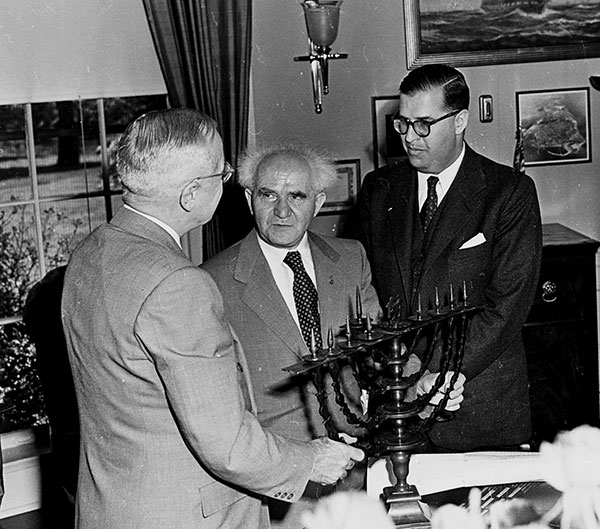
Herf argues that if the victorious allies had only put the mufti on trial for war crimes, especially for his role in organizing an SS division of Bosnian Muslims, it might have undermined the State Department Arabists’ arguments and prevented the next stage of Husseini’s career:
The absence of a trial of Husseini had important consequences for the future of Jews and Arabs in Palestine after World War II. Such a trial would have . . . made it more difficult for him to revive his political career and . . . would have made it far more difficult for the United Nations in 1947 to allow him and the Arab Higher Committee to represent the Palestine Arabs [in debates over partition].
Later, he goes even further, arguing that if Husseini had not been allowed to revive his political career, “perhaps other, moderate, forces willing to accept partition in Palestine would have had more opportunities to counter the power of the rejectionists that Husseini had reassembled.”
No doubt Husseini was a war criminal steepedin Jew hatred, but Herf’s counterfactual argument is a tough sell. Rejectionist sentiments were, after all, dominant in every Arab capital. Not only was the mufti less autonomous and influential, in my opinion, than Herf suggests, but his prosecution most likely would have been viewed as a one-off aberration by the US foreign policy establishment and would not have trumped the arguments of Marshall, Kennan, and others that the creation of a Jewish state ran counter to US strategic interests. Thankfully, that argument was overcome by politics—and the fundamental decency of the haberdasher from
Missouri.
Indeed, through it all, Truman remains the hero that generations of American Jews have considered him to be—a flawed hero, to be sure, one who couldn’t impose his will firmly and consistently on a foreign policy elite that tried repeatedly to undermine him, but a hero nonetheless. “The Zionists were fortunate that in Harry Truman the United States had a most atypical Cold Warrior as president,” Herf explains. “In contrast to his diplomatic and military leadership, he combined opposition to communism with support for the Zionist cause.” There it is—the cognitive dissonance whose unlikely product became Israel’s Moment: Truman and Stalin as de facto allies, helping to midwife the birth of the Jewish state.
Suggested Reading
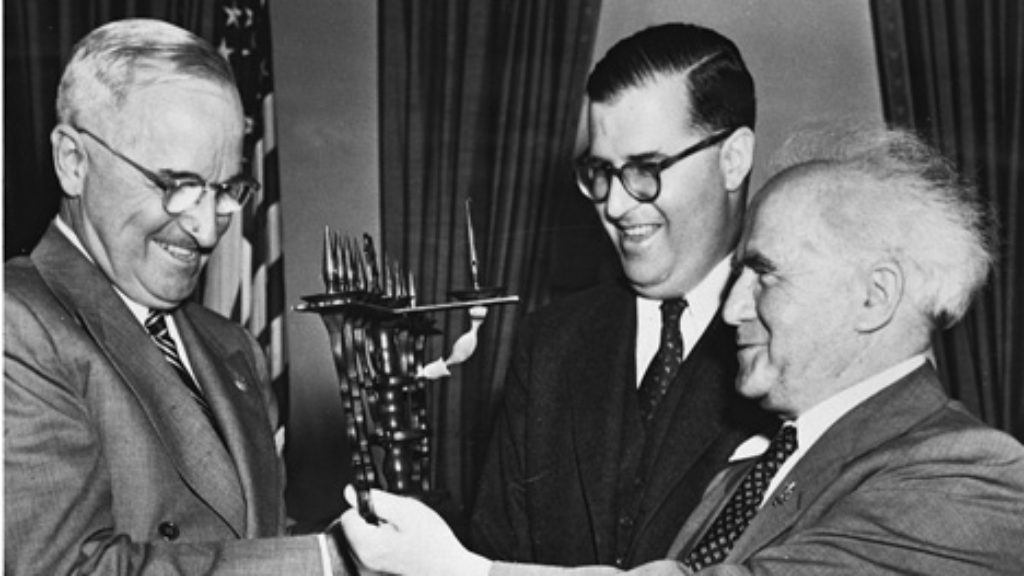
Shifting Daylight
Ross shows how the U.S.-Israel relationship has survived, and even thrived, since 1948 despite the radically different approaches taken by successive presidents.
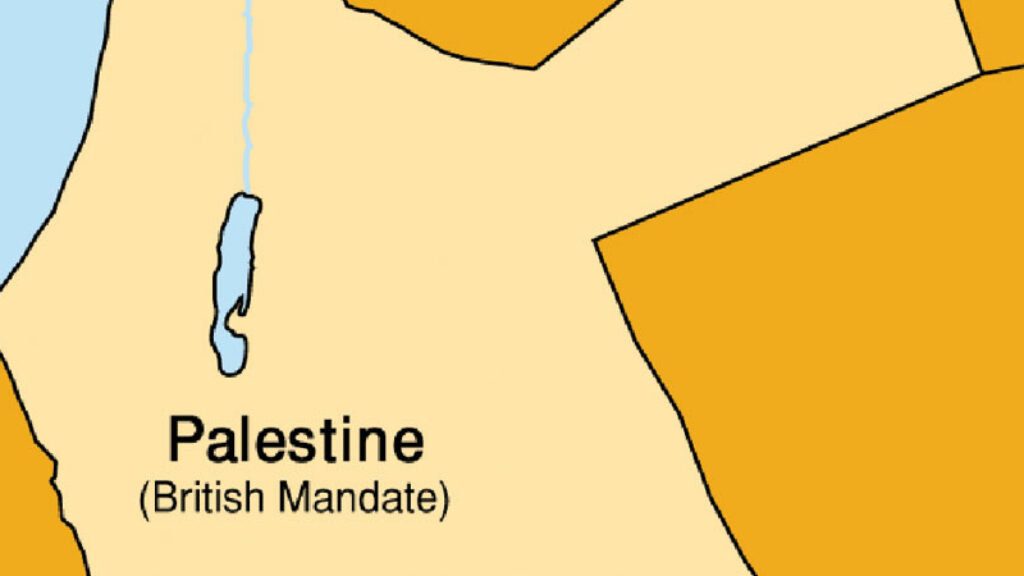
Lawrence of Judea: T. E. Lawrence and the Deal of the Twentieth Century
"It is essential that [the Jewish community] should know that it is in Palestine as of right and not on sufferance." —Winston Churchill
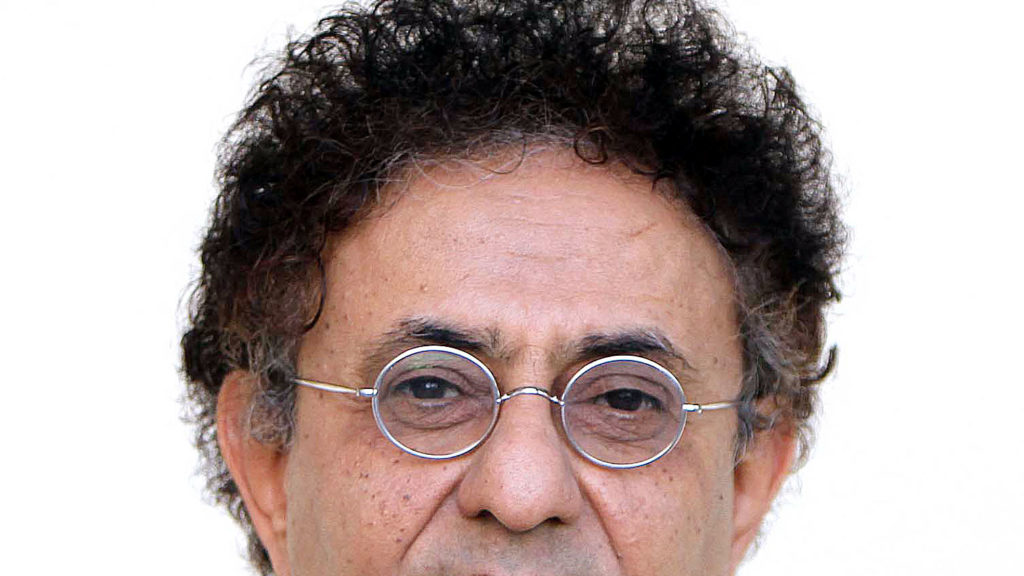
Manufacturing Falsehoods
An immense echo-chamber has been built, and the line is always the same: Israel is not allowed to be a country like any other.
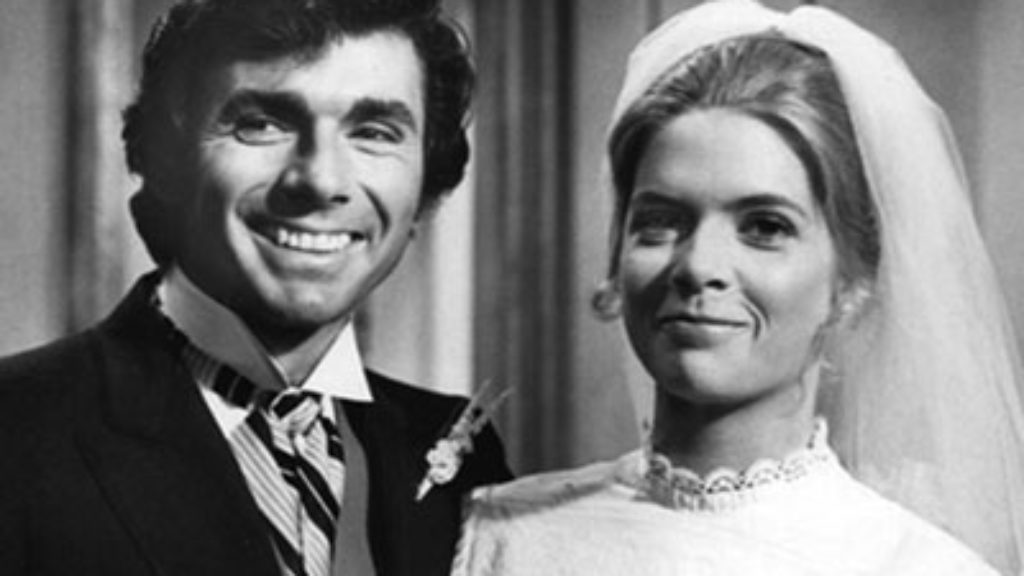
Open-Door Policy
The Jewish American Paradox expresses Mnookin’s conviction that only a Judaism of choice, open to all who publicly declare their belonging, has any prospect of flourishing in American society.
Comments
You must log in to comment Log In